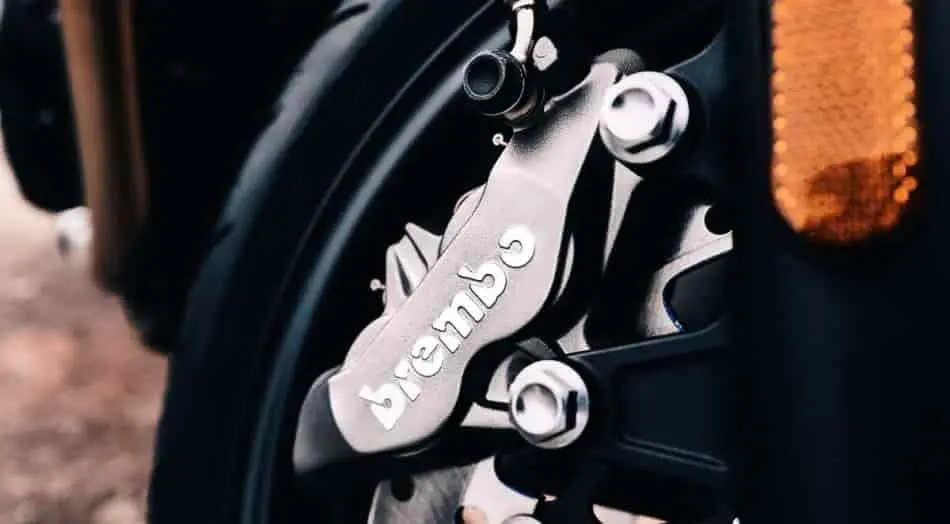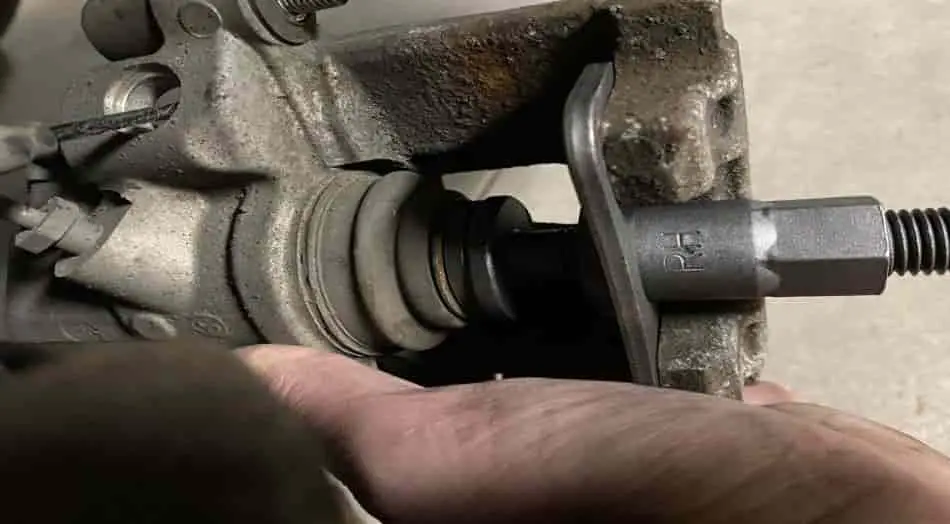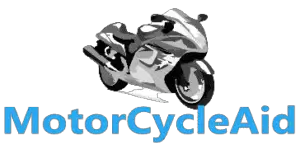The motorcycle brake caliper piston retraction problem can be caused by several factors, including contaminated brake fluid, worn brake pads, corroded brake caliper pistons, and malfunctioning brake master cylinder. If you own a motorcycle, you know how important it is to have properly working brakes. Your safety depends on it.
One common problem that many riders face is the brake caliper piston retraction issue. When you apply the brakes, the pistons in the brake calipers are supposed to extend to apply pressure to the brake pads. But when you release the brake lever, the pistons are supposed to retract, so the brake pads are no longer in contact with the rotors. If the pistons don’t retract properly, your brakes may drag or even lock up, which can be very dangerous. In this article, we will discuss the causes of the brake caliper piston retraction problem and how to fix it.
Causes of the Brake Caliper Piston Retraction Problem
There are several reasons why the brake caliper pistons may not retract properly. Some of the most common causes include:

01. Contaminated Brake Fluid
If the brake fluid is contaminated with dirt, water, or air, it can cause the brake caliper pistons to stick. This is because the contaminants can get trapped in the brake lines and prevent the brake fluid from flowing freely. This can cause the pistons to remain extended, even when you release the brake lever.
02. Worn Brake Pads
Worn brake pads can also cause the brake caliper pistons to stick. When the brake pads are worn, they can become warped and not slide smoothly in the brake caliper bracket. This can cause the brake caliper piston to remain extended, even when you release the brake lever.
03. Corroded Brake Caliper Pistons
If the brake caliper pistons are corroded, they can also stick and not retract properly. This is because the corrosion can cause the pistons to become rough and not slide smoothly in the caliper bore. This can cause the brake caliper piston to remain extended, even when you release the brake lever.
04. Malfunctioning Brake Master Cylinder
If the brake master cylinder is not functioning properly, it can also cause the brake caliper pistons to stick. This is because the brake master cylinder is responsible for regulating the flow of brake fluid to the brake calipers. If it is malfunctioning, it can cause the pistons to remain extended, even when you release the brake lever.
How to Fix the Brake Caliper Piston Retraction Problem?
Now that we know the causes of the brake caliper piston retraction problem, let’s discuss how to fix it. Here are some steps you can take to ensure that your brake caliper pistons retract properly:

01. Flush the Brake System
The first step is to flush the brake system and replace the contaminated brake fluid. This will help to ensure that the brake fluid flows freely and that there are no contaminants in the brake lines that can cause the pistons to stick.
02. Replace the Worn Brake Pads
If the brake pads are worn, you should replace them with new ones. This will ensure that the brake pads slide smoothly in the brake caliper bracket, which will prevent the pistons from sticking.
03. Clean the Corroded Brake Caliper Pistons
If the brake caliper pistons are corroded, you should clean them with a wire brush and brake cleaner. This will help to remove the corrosion and ensure that the pistons slide smoothly in the caliper bore.
04. Replace the Malfunctioning Brake Master Cylinder
If the brake master cylinder is malfunctioning, you should replace it with a new one. This will help to ensure that the brake fluid is properly regulated and that the pistons retract properly.
05. Lubricate the Brake Caliper Pistons
Once you have cleaned the brake caliper pistons, you should lubricate them with brake grease. This will help to ensure that the pistons slide smoothly in the caliper bore, which will prevent them from sticking.
06. Check the Brake Caliper Slides
The brake caliper slides are responsible for holding the brake pads in place and allowing them to move freely. If the slides are worn or corroded, they can cause the brake caliper pistons to stick. You should inspect the slides and replace them if necessary.
07. Check the Brake Caliper Seals
The brake caliper seals are responsible for keeping the brake fluid inside the caliper and preventing it from leaking out. If the seals are worn or damaged, they can cause the brake caliper pistons to stick. You should inspect the seals and replace them if necessary.
08. Bleed the Brakes
Bleeding the brakes is the process of removing air from the brake lines. If there is air in the brake lines, it can cause the brake caliper pistons to stick. You should bleed the brakes to ensure that there is no air in the lines.
09. Replace the Brake Caliper
If all else fails, you may need to replace the brake caliper. This is a last resort, as it can be expensive. However, if the brake caliper is damaged or corroded beyond repair, it may be necessary to replace it.
People May Ask: FAQs
Why are my motorcycle brakes dragging?
Brakes may drag because the brake caliper pistons are not retracting properly, which can be caused by contaminated brake fluid, worn brake pads, corroded brake caliper pistons, or malfunctioning brake master cylinder.
How do I know if my brake caliper pistons are sticking?
If your brake caliper pistons are sticking, you may experience dragging or locking brakes, reduced braking power, or uneven brake pad wear.
Can I fix the brake caliper piston retraction problem myself?
Yes, you can fix the problem yourself by flushing the brake system, replacing the worn brake pads, cleaning the corroded brake caliper pistons, lubricating the pistons, checking the brake caliper slides and seals, bleeding the brakes, and replacing the brake caliper if necessary.
How often should I flush my motorcycle’s brake system?
You should flush your motorcycle’s brake system at least once a year or whenever you notice a problem with the brakes.
How much does it cost to replace a brake caliper?
The cost of replacing a brake caliper varies depending on the make and model of your motorcycle and the cost of labor in your area. Generally, it can cost anywhere from $100 to $500 or more.
Conclusion
In conclusion, the brake caliper piston retraction problem is a common issue that many motorcycle riders face. There are several reasons why the brake caliper pistons may not retract properly, including contaminated brake fluid, worn brake pads, corroded brake caliper pistons, and malfunctioning brake master cylinder. However, there are several steps you can take to fix the problem, including flushing the brake system, replacing the worn brake pads, cleaning the corroded brake caliper pistons, lubricating the pistons, checking the brake caliper slides and seals, bleeding the brakes, and replacing the brake caliper if necessary.

